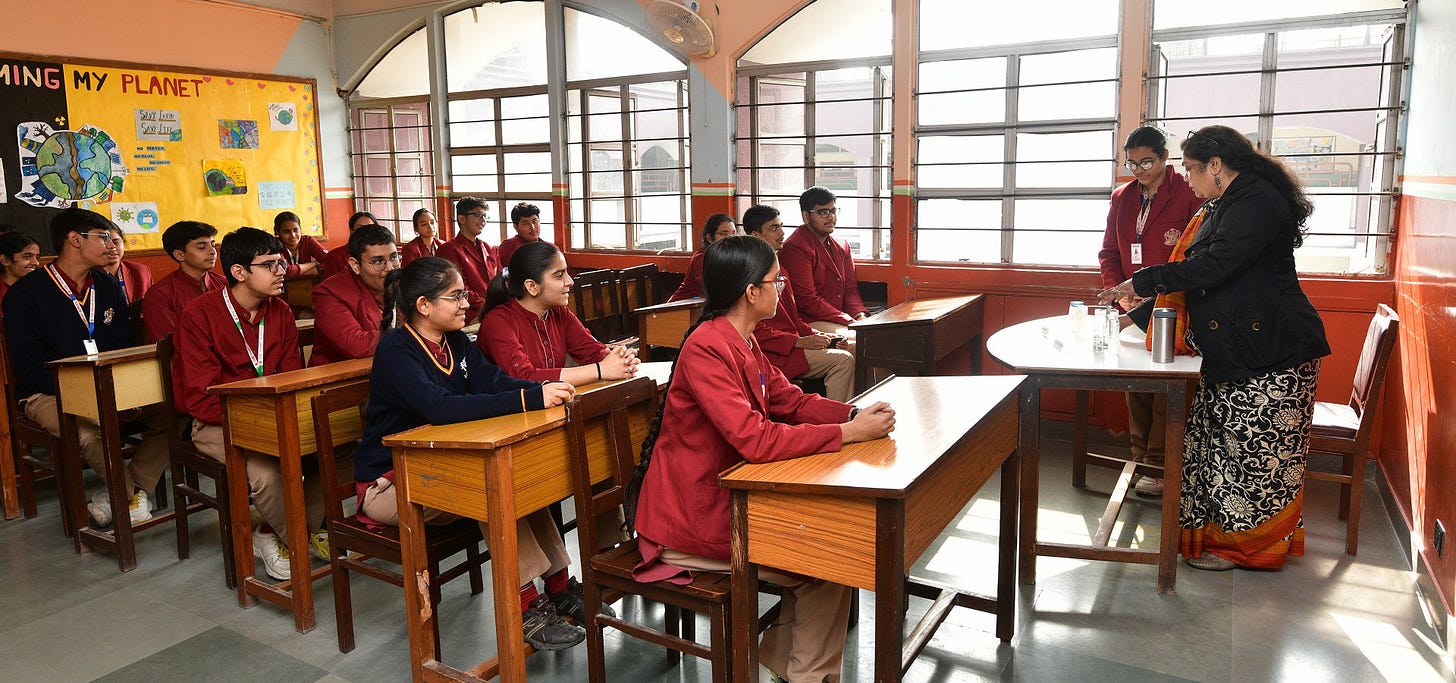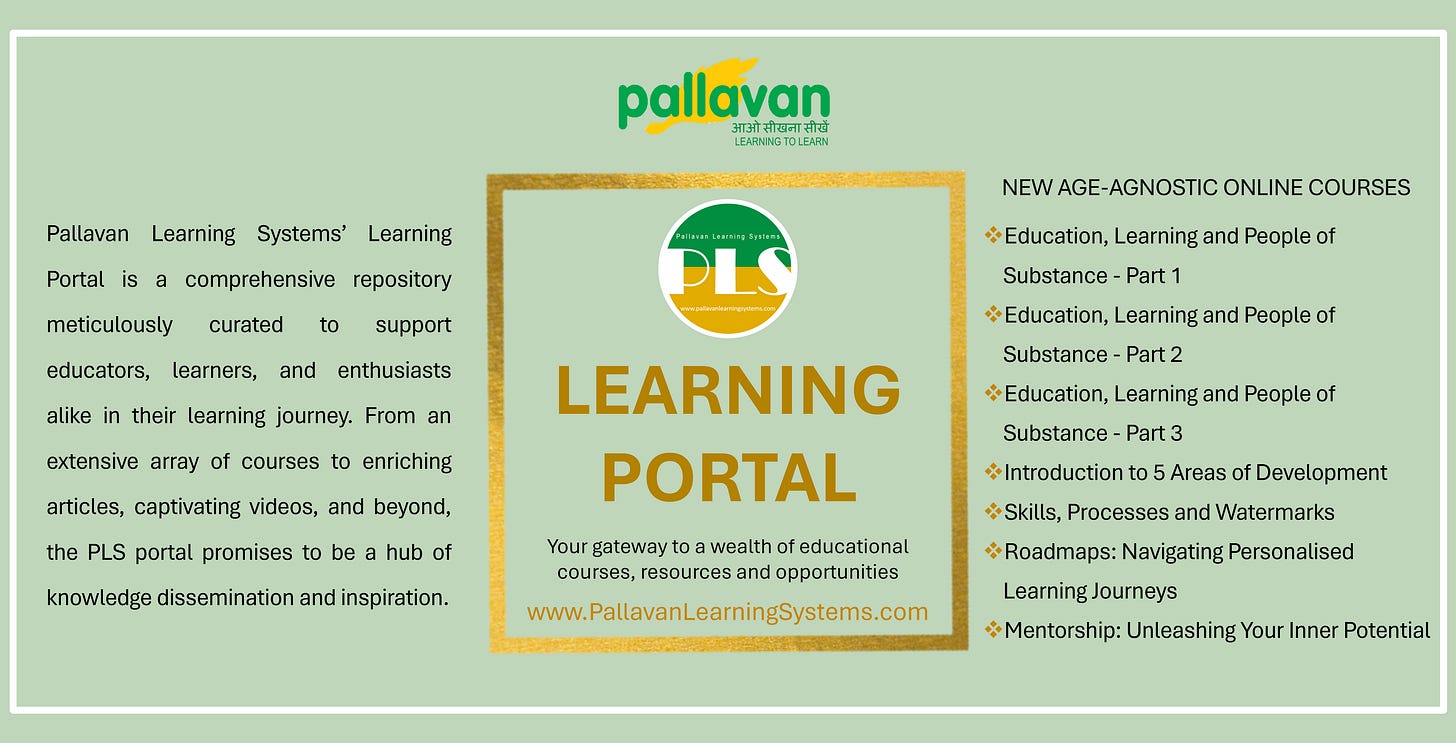February 2025 Issue
We hope this message finds you well. We are reaching out to you since you have been a part of our programmes. It has been a delight to share ideas and insights with you during our events and webinars. If you wish to subscribe to our newsletter and get regular updates, please subscribe to our Substack.
Here is our latest edition for your information.
Editor’s Note:
Dear Reader,
Welcome to the February edition of our newsletter!
This month, we explore how Artificial Intelligence is transforming inclusive education in India. With AI-driven tools offering personalised learning, assistive technologies, and multilingual content, the potential to bridge learning gaps has never been greater. In a country as diverse as India, where socio-economic and linguistic barriers often hinder access to quality education, AI presents a promising solution.
However, challenges such as the digital divide, algorithmic bias, affordability, and policy fragmentation must be addressed to ensure AI truly enhances inclusivity rather than deepening existing inequalities. As we navigate this evolving landscape, a collaborative approach—bringing together educators, policymakers, and technologists—is essential.
Let’s embrace AI as a force for inclusivity and accessibility in education!
Artificial Intelligence and Inclusive Education in India
by Kreeti Goswami
Artificial Intelligence (AI) is reshaping education globally, offering innovative solutions to enhance accessibility and inclusivity. In India, where socio-economic diversity, linguistic variations, and varied learning needs pose unique challenges, AI has the potential to create an equitable learning environment. The Indian EdTech market is expected to reach $10.4 billion by 2025, driven by the growing adoption of AI and digital learning platforms. According to a KPMG report, AI-powered learning platforms have demonstrated a 20–30% increase in student engagement and retention rates compared to traditional methods.
India faces a considerable teacher shortage, with a student-teacher ratio of 24:1—higher than UNESCO’s recommended 15:1 ratio. UNESCO also recognises AI-driven solutions as a means to achieve Sustainable Development Goals (SDGs) by 2030. The UNESCO State of Education Report for India, 2022 highlights the National Education Policy (NEP) 2020’s focus on AI literacy, encompassing both technological and human dimensions. The human dimension stresses awareness of AI’s limitations and risks. The report identifies the drawbacks of a one-size-fits-all approach and emphasises the need for intelligent tutoring systems capable of real-time learning assessment.
The Ethics of AI in Education
by Kaska Porayska-Pomsta, Wayne Holmes, Selena Nemorin
Courtesy: Cornell University
The transition of Artificial Intelligence (AI) from a lab-based science to live human contexts brings into sharp focus many historic, socio-cultural biases, inequalities, and moral dilemmas. Many questions that have been raised regarding the broader ethics of AI are also relevant for AI in Education (AIED). AIED raises further specific challenges related to the impact of its technologies on users, how such technologies might be used to reinforce or alter the way that we learn and teach, and what we, as a society and individuals, value as outcomes of education. This chapter discusses key ethical dimensions of AI and contextualises them within AIED design and engineering practices to draw connections between the AIED systems we build, the questions about human learning and development we ask, the ethics of the pedagogies we use, and the considerations of values that we promote in and through AIED within a wider socio-technical system. Keep reading
Balancing Digital Consciousness and Human Intelligence: A Call to Action for Parents and Educators
by Joshua Lipka
Courtesy: Digital 4 Good
In today's rapidly evolving digital landscape, the influence of technology on our daily lives is undeniable. From smartphones to artificial intelligence (AI), technology shapes how we communicate, learn, and interact with the world. For Generation Z, the first truly digital-native generation, technology is as fundamental as breathing.
While this connectivity offers unprecedented access to information and opportunities, it also presents challenges that parents and educators must navigate to ensure the healthy development of young minds. This is where the balance between digital consciousness and human intelligence becomes crucial. Keep reading
PLS Learning Portal
Your gateway to a wealth of educational courses, resources and opportunities
For more information about each courses, click here
Sign Up or Login to avail these online courses from May 3, 2024.
Past Events
Philosopher’s Retreat 2024: Navigating Human Connection and Development in the Age of Technology
This year’s retreat explored how technology and digital innovation are reshaping human perception, emotional resilience, and the ability to form meaningful connections. Participants examined the impact of the rapid flow of information on intellect and focus, while addressing the challenge of balancing technological engagement with authentic personal development. The discussions emphasised the importance of preserving essential human qualities—such as empathy, creativity, and critical thinking—in an increasingly digital world. To read the full report Click here.
Services
Ritinjali
On 23rd January, in the session with Ritinjali teachers and students, the PLS Portal was introduced, highlighting its features and possibilities. Teachers were guided on managing data, accessing professional development resources, and enhancing their skills, while students explored ways to enrich their learning experiences on the platform.
PLS conducted a session at Ritinjali with the students, on the Purpose of Education, introducing Skills, Processes, Watermarks, and Roadmaps. As the first session with the new cohort, it focused on engaging participants in discussions about the importance of mental health alongside physical well-being, the role of resilience in people's lives, and the significance of community. With this opening session, students will begin charting their roadmaps, which will be revisited throughout the workshop
In January, Dr. Saroj Thapa conducted a session with the teachers of the Learning Centres on Action Research, highlighting its importance in enhancing teaching practices and improving student learning outcomes. Action Research empowers educators to systematically identify challenges in their classrooms, experiment with new strategies, and assess their impact in real time, fostering continuous professional development and reflective teaching. The session provided practical insights into implementing Action Research, guiding teachers through the process of identifying problems, collecting data, analyzing results, and applying findings to enhance student engagement and learning. By adopting this inquiry-driven approach, teachers can cultivate a culture of continuous learning and innovation, leading to more effective and responsive education practices.
Pallavan School, Jhalawar
The session with Dr. Dinesh Singh with the teachers focused on exploring AI’s role in education. Participants discussed AI tools for creating educational materials, generating questions, and handling code while emphasizing the importance of spelling, grammar, and verification of AI-generated content. The group also explored AI applications in lesson planning, job applications, and translation, with concerns about over-reliance on AI. The next steps include continued exploration of AI tools, verifying content accuracy, and uploading session materials for further review.
Thanks for reading PLS Newsletter! Subscribe for free to receive new posts and support our work.






